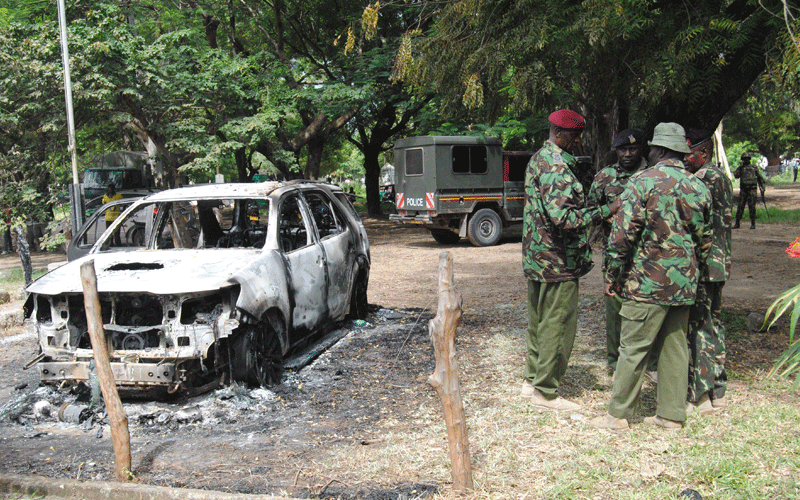Widows recount struggles after Mpeketoni raid
By Reuben Mwambingu, June 16, 2020
Reuben Mwambingu @reubenmwambingu
The past six years have been like decades for Doris Mbinya, 26, who recalls the bitter memories of how she lost her husband in the hands of al Shabaab militiamen during the chilling Mpeketoni attack where more than 60 people were killed.
She recalls how on the night of June 15, 2014 the militants struck and unleashed terror on residents specifically targeting men.
That night, her husband the late Geoffrey Korir, whom they had lived together with for only six months, was on his way back home after work as a boda boda operator when he encountered the attackers on a killing spree.
Mbinya who was by then five months pregnant recalls she would learn the following day that her husband was among those killed.
“I learnt the following morning that my husband was killed in the raid because when the attack began, we hid in the bush where we stayed until morning.
We couldn’t use phones because there was no network as the nearby masts were destroyed,” she says, adding that: “It happened that after dawn neighbors started searching for their loved ones and in the process they discovered the body of my husband on the road with bullet wounds on the head.”
In-laws conflict
Four months after her husband was buried, her son, who is now in PP2, was born. She says the son restored some hope.

But this would not last as the death of her husband, as she explains, appeared to have invited another chapter of misery in the form of conflict with her in-laws, who alleged she was never married to their son.
“My in-laws travelled all the way from Rift Valley and all they wanted was to take away the only piece of land that my husband had bought. They were demanding the plot so that they could sell it off .
They even took me to the police claiming that I was never married to their son. Luckily I was the one holding the agreement documents and they got stuck in the case,” Mbinya recalls.
For the 26-year-old mother of one, her husband’s demise left her struggling financially as he was the sole breadwinner in their young family. As a result she has been forced to do odd jobs to eke a living.
“It has been very difficult for sure. Life here has been full of emptiness since then.
I was never prepared for this. The death struck while we were about to usher parenthood,” she explains.
Mbinya is a typical case of how traumatised widows whose husbands perished in the Mpeketoni attack have continued to endure suffering in silence.
For the majority of the widows, the attack has been like a curse that has invited a trail of misery in their households, with most of them facing almost identical challenges.
Witness killing
Another widow, Lucy Wanjiku Ndung’u says besides living with the psychological torture of witnessing her husband Francis Kamande being shot and killed, she has had to endure the agony of being hounded out of her matrimonial home by her in laws.
On that night of June 15, 2014, they had just finished taking super when the attackers struck the neighborhood.
“We had just finished eating when we heard gun shots and screams in the neighborhood. But shortly the militants would be at our doorstep.
They picked my husband from our house. In fact they wanted to pick our first born but changed their mind and left him.
They took my husband outside and ordered him to lie down and shot him,” Wanjiku recalls.
She says her husband was a carpenter, but apart from that, they also used to farm in the remote areas of Mpeketoni where they had also put up a house.
“We had a house at the farm where we used to shelter while on farming duties and another house in Mpeketoni township which was our main home. But after my husband died my in-laws came and took everything.
We were only left with the house in Mpeketoni town. My husband left me with two sons aged three and six,” she says adding: “Nobody from my in laws side has ever bothered to know how the children are doing.”
At the same time, Wanjiku says both levels of government have abandoned them as they wallow in misery.